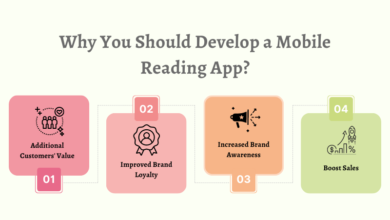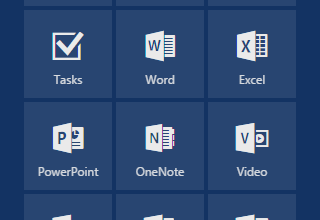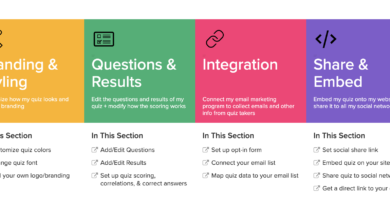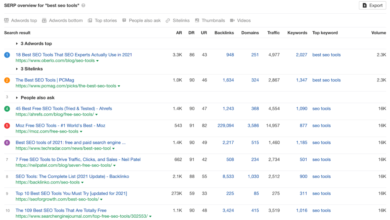How to Choose the Best Blogging Platform in 2023 (Compared)

Do you want to start your own blog but don’t know how to choose the best blogging platform? It’s a tough choice as there are several different blogging platforms out there. How do you know which one is right for you?
In this article, we’ll help you choose the best blogging platform by going through the pros and cons of the most popular blogging sites.
Reading: How to create a blog in wordpress tutorial

Here are the popular blogging platforms that we will compare in this article. If you are interested in a specific platform, you can click the link to jump further in the article.
- WordPress.org
- Web.com
- Wix
- HubSpot CMS
- Gator
- WordPress.com
- Blogger
- Tumblr
- Medium
- Squarespace
- Ghost
- Weebly
Choosing the best blogging platform – what to look out for?
Before diving into the list, it helps to know what you’re looking for in a blogging platform.
As a beginner, you want a blogging platform that’s easy to use set up, has a low learning curve and requires no coding skills.
You also need to think about what kind of blog you want to create now and in the future.
p>
As your blog grows, you may want to change the look of your website and add more features for your growing audience. This means it’s important to choose a blogging platform that is flexible and has room to grow.
If you start with the wrong platform, it can be very difficult to switch later.
Finally, even if you don’t currently plan to blog for money, it’s wise to make sure you have the opportunity to do so in the future.
Considering all of which we want to compare the best blogging platforms beginners.
1. WordPress.org
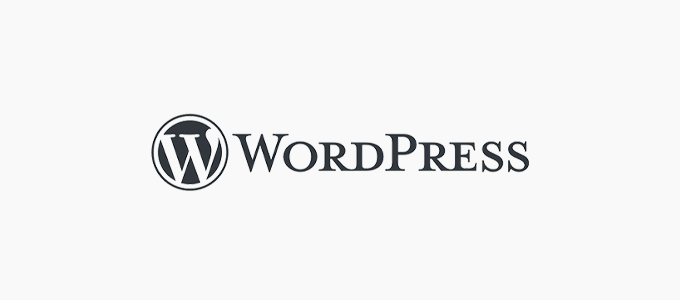
WordPress.org is the world’s most popular blogging software. Founded in 2003, WordPress now powers more than 43% of all websites on the internet.
Note: It’s easy to confuse WordPress.org with WordPress.com, which is a blog Hosting service mentioned later in this list. Check out our guide on the difference between WordPress.org and WordPress.com.
WordPress.org is a free, open-source blogging platform that lets you create your website or blog in minutes
It’s a self-hosted solution, which means you need to sign up with a WordPress hosting provider. WordPress is a great option if you want full control over the future of your blog.
Benefits
- WordPress.org gives you the Control over every aspect of your website.
- You can expand your blog and add additional features such as forums, online store, paid memberships and online courses. This makes WordPress the best free blogging platform to make money.
- There are thousands of free themes for WordPress. This way you can create a beautiful website that will stand out from the crowd. Most popular WordPress themes come with built-in customization options, giving you full design control without having to edit any CSS code.
- You also get access to more than 59,000 free WordPress plugins. These plugins are like apps for your WordPress blog that allow you to add features like contact forms, galleries, etc. Check out our list of must-have WordPress plugins for any website.
- WordPress is search engine friendly. You can easily create SEO friendly URLs, categories and tags for your posts. There are also a whole bunch of great SEO plugins for extra optimization.
- You can easily enable Google Analytics powered website analytics in WordPress so you can see the stats that matter. This will help you grow your new blog traffic and subscribers.
- Last but not least, WordPress’ drag-and-drop editor makes it easy to create any type of content on your blog site . It also has options to embed dynamic content like videos, social media feeds, Google Adsense, graphs, charts and more without any technical know-how.
Cons
- Managing your own website comes with a bit of a learning curve as you would need to become familiar with the WordPress admin backend.
- You will need to manage your own backups and security manage .
See also: How to Start a Blog on Facebook [Including 19 Post Ideas People Love]
Pricing
WordPress software is free, but you need a domain name (about $14.99/year) and Hosting (usually starts at $7.99/month).
You need a domain name and web hosting to launch any type of website.
WPBeginner users can start with Bluehost for just 2 $.75 per month to get started, an official WordPress recommended hosting provider. They offer our users a 60% discount on web hosting and a FREE domain name.
Check out our guide to starting a WordPress blog for a complete step-by-step guide.
Overall, WordPress is an excellent choice for both personal blogs as well as for professional blogs.
p>
The majority of well-known bloggers on the Internet use WordPress as their content management system because it is easy to use and offers all the features you need to create a successful blog need.
Bonus: Besides building a blog site, you can use WordPress to create a small business website as well as an online store. Check out our in-depth guide to building a WordPress website for more details.
2. Web.com

Web.com is a well-known website builder platform that comes with the built-in feature of adding a blog section to your business website or online store.
Their drag and drop website builder platform is extremely easy to use for non-technical users, and they offer very affordable prices to get started ($1.95).
You can choose from their dozens of pre-made templates and then customize your blog layout without having to write any code. It includes all powerful features like SEO tools, blog security features, auto save and backup, website analytics and more.
Benefits
- Beginner-friendly drag-and-drop website builder (no coding required).
- Dozens of fully customizable templates for your blog.
- Easy setup with no hassles since Web.com is around everything takes care of the technicalities of hosting your website.
- Affordable entry-level price – $1.95 per month and all essential features included
- Free domain is included with all paid plans.
- Customer support available 24/7 via phone, live chat and email.
Cons
- The extensions/app ecosystem is small, so there aren’t as many third-party plugins as WordPress.
- Blogging features aren’t nearly as powerful as WordPress.
- Da We b.com is a proprietary website builder, it is difficult to move your website to another platform later.
Pricing
The prices of Web.com start at $1.95 per month for their website starter plan that comes with their drag and drop site builder, blogging platform, hundreds of beautiful templates, thousands of free stock images, and a free domain.
If you want to use their powerful SEO tools or eCommerce features, you’ll need to upgrade to their Marketing plan starting at $2.95 per month or their Ecommerce plan starting at $3.95 per month.
p>
These prices are available to WPBeginner readers as part of our Web.com coupon offer. All you have to do is click our link to get these special pricing.
If you are a small business that doesn’t want to use WordPress, then all things considered, Web.com is the one next best choice you get for the price.
3. Wix

Wix is a popular hosted platform for building websites. Their drag and drop website builder offers a small business solution to build a website easily. You can also add a blog to your website by adding the Wix Blog app.
Wix.com was founded in 2006 as a platform for anyone to create their own stunning website, with no coding skills required. It currently has over 110 million users around the world.
Advantages
- You can customize your website with dozens of templates and add-ons from customize third-party providers. ons.
- Build your website with simple drag-and-drop tools; no programming or HTML knowledge required.
- Setup is quick and easy.
Cons
- The free account is restricted and will show Wix branding and ads on your site.
- Free third-party apps are restricted.
- Once you’ve selected a template, you can don’t change them anymore.
- Ecommerce features are limited to paid plans, and even those features are limited.
See our article on Wix vs. WordPress for a detailed comparison of the two platforms.
See also: How to Start a Blog on Facebook [Including 19 Post Ideas People Love]
Pricing
The basic Wix website builder is free. With a free Wix account, you get a Wix subdomain that looks like this: https://username.wixsite.com/example.
However, you can add a custom domain for $4.50/month . Their premium plans start at $8.50/month and go up to $24.50/month.
4. HubSpot CMS
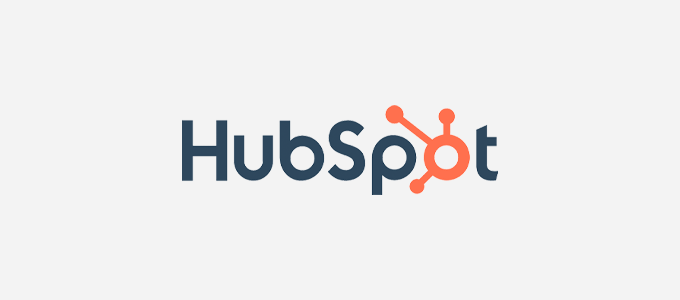
HubSpot CMS Hub is an all-in-one blogging platform for small, medium and enterprise websites.
So it builds on the marketing and CRM tools of HubSpot on You can use a single platform to build a website, get more subscribers, send out newsletters, manage your customer list, and more.
Your website builder makes it easy to customize your website design layout and you can even personalize the content readers see based on their past behavior.
Benefits
strong>
- Easy-to-use drag-and-drop website builder with no coding skills required.
- Quick and easy setup because HubSpot uses your website for It hosts.
- Fully optimized for SEO and conversions.
- Free SSL certificate is included.
Cons
- While the HubSpot CRM itself comes with free tools (like contact management, email marketing, and forms), there is no free version available for the CMS.
- Prices can get high as you level up.
- If you are switching from another blogging platform, the migration process can be lengthy depending on your previous provider.
Prices
The HubSpot CMS plan starts at $25 per month and includes all the core features needed for a secure, well-designed blog, plus the marketing tools you need to grow it.
For the custom SEO recommendations and advanced features, you should upgrade to the higher tiers.
WPBeginner readers get a 14-day free trial.
Note : You can use WordPress in combination with the free HubSpot plugin to combine the power of the best blogging platforms and marketing tools.
5. Gator by HostGator

See also: Add Files or Folders to ZIP Archives Programmatically in C
Gator is a website builder and blogging platform developed by HostGator, the popular web hosting company we used to host the WPBeginner website with. Gator offers a drag and drop tool that you can use to create any type of website, including blogs, business pages, and even an online store.
It is important that you do not use the Gator builder with the HostGator site confuse hosting. You can use HostGator hosting service to start a WordPress blog like we did.
However, if you’re after a non-WordPress all-in-one blogging platform and If you are looking for a hosting solution, then Gator is the perfect option.
Advantages
- Easy drag-and-drop builder to customize your blog and website designs.
- Quick setup – no technical hassles.
- Backups, performance and security are all handled by HostGator (no headaches).
- Free domain and SSL certificate are included in all plans.
- Can easily add an online store to your blog with just a few clicks.
Cons
- There is no free account, but they have a 45-day money-back guarantee.
- Ecommerce features are limited to higher plans.
- Limited number of apps and extensions.
Prices
W PBeginners receive a 55% discount on all Gator Builder plans. The Starter plan costs $3.46/month and includes all the features you need to start a successful blog, including a free domain and SSL certificate.
You just need to make sure you use our Use Gator Website Builder Coupon Code : wpbeginner to get 55% discount.
6. WordPress.com

WordPress.com is a blog hosting service provided by Automattic, a company founded by WordPress.org co-founder Matt Mullenweg.
WordPress.com offers a simple blog hosting service for free. You can purchase additional options like a custom domain name, additional storage, and other premium services.
WordPress.com was founded in 2005 with the aim of bringing WordPress to a larger audience and is a good blogging site for WordPress.com users who don’t want the advanced features of self-hosted WordPress.
Benefits
- No setup required.
- Easy to use and manage.
- It’s completely free if you’re happy with a WordPress.com subdomain. Your free site name will look like this: https://example.wordpress.com.
Cons
- Limited options for Grow your own website. You cannot use custom themes and plugins to customize your blog.
- You cannot advertise on your blog. Instead, WordPress.com will show their ads on your free site.
- You do not own your blog and WordPress.com may suspend your account if they determine that you are violating their Terms of Service.
See also: How to Start a Blog on Facebook [Including 19 Post Ideas People Love]
Pricing
The basic WordPress.com account is free, but it will include WordPress.com ads and branding.
< You can upgrade to their personal plan for $4/month (billed annually) to remove the WordPress.com logo and ads from your site. You also get a custom domain (e.g. www.yoursite.com).
For $8/month (billed annually), you can get additional design tools and additional storage.
Because of the similarity in names, beginners often start with WordPress.com thinking they are getting the powerful WordPress.org software.After seeing the limitations, users often move from WordPress.com to WordPress.org for more features, ease of use, and control over their site.
7. Blogger

Blogger is a free blogging service provided by Google. It provides a quick and easy way to create a blog for non-technical users.
Blogger is one of the earliest blogging platforms in existence. It was first launched by Pyra Labs in 1999. Later in 2003, Google acquired Blogger and transformed it into the product we know today.
All you need is a Google account to start a free blog on Blogger.
p>
Advantages
- Blogger is free.
- It is easy to use and manage without any technical knowledge.
- Has the added benefit of Google’s secure platform robustness and reliability.
Cons
- You’re blogging on basic -Tools are limited and cannot add new features as your blog becomes more popular.
- Theme options are limited as fewer templates are available. Third-party templates for Blogger are often of poor quality.
- Blogger does not receive frequent updates or new features.
- Google may suspend your blog or even terminate the Blogger service altogether at any time. (They have abandoned projects without warning in the past, such as Feedburner.)
For more Blogger pros and cons, check out our WordPress vs. Blogger comparison (pros- and disadvantages).
p>
Some users start with Blogger because it’s free, but as their blog grows, they eventually switch from Blogger to WordPress for more features and control via their website.
Pricing
Blogger is free with a Blogger subdomain like https://example.blogspot.com. If you want to use a custom domain, you need to buy from a third-party domain registrar.
8. Tumblr
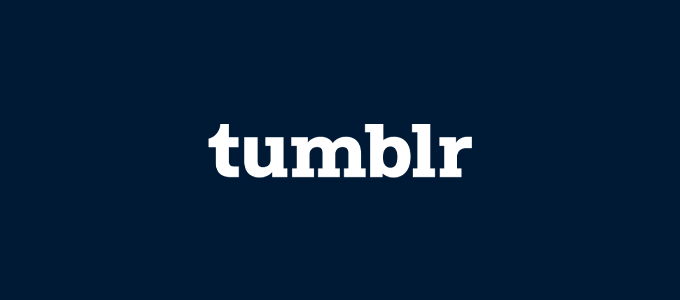
Tumblr is a little different from other blogging platforms. It is a microblogging platform with social networking features including following other blogs, reblogging, built-in sharing tools and more.
Advantages
- Tumblr is free with a Tumblr subdomain like https://example.tumblr.com. You can also connect a premium custom domain name.
- It’s very easy to set up and use.
- It has a built-in social media platform that makes it easier to find because it has a built in audience.
- As a microblogging tool, Tumblr makes it easy to quickly blog videos, GIFs, images, and audio formats.
Cons
- Tumblr has a limited set of features that you cannot expand as your blog grows.
- There are many themes for Tumblr, but they cannot offer any additional ones Features.
- It’s difficult to backup your Tumblr blog or import it to other platforms (see our guide to switching from Tumblr to WordPress).
Pricing
Tumblr is free to use. You can use a custom domain (purchased separately) for your Tumblr blog, and there are also third-party themes and apps that you can purchase.
9. Medium

Since its launch in 2012, Medium has grown into a community of writers, bloggers, journalists and experts. It’s an easy-to-use blogging platform with limited social networking features.
Medium works similar to a social networking site where you can create an account and start publishing your articles. After you sign up, you’ll have a profile address like this: https://medium.com/@yourname. However, you cannot use your own domain.
Advantages
- Medium is easy to use, no setup is required and no coding skills are required required.
- It allows you to reach an existing online community of people with similar interests.
- You can focus solely on writing instead of designing a website.
li>
Disadvantages
- Functions are very limited in terms of design or brand building.
- Medium owns your audience, so losing your blog means losing all your followers.
- You cannot use your own domain name. You just get a profile page like Facebook, e.g. https://medium.com/@yourname.
- You can’t run your own ads to make money as monetization is limited to their affiliate program.
More Details Compare our guide to WordPress vs. Medium – which is better?.
See also: How to Start a Blog on Facebook [Including 19 Post Ideas People Love]
Pricing
The Medium is free to use.
While the platform looks attractive at first glance, the lack of monetization and control is what makes most people switch from Medium to WordPress.
10 . Squarespace
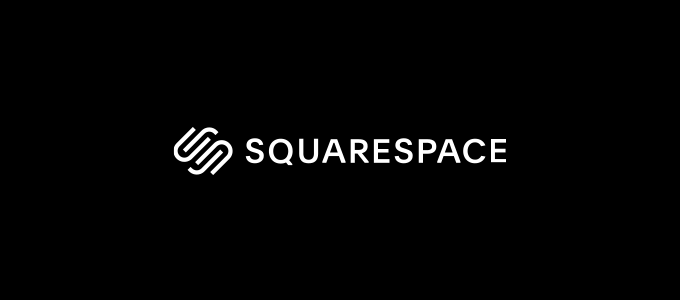
Squarespace is a website building service, which allows you to create beautiful websites with simple drag-and-drop tools.It focuses on small business owners looking for an easy way to create an online presence.
Squarespace was founded in 2003 and currently operates millions of websites online (source: CMS market share).
Advantages
- Squarspace is simple and easy to use for beginners who are not very tech savvy.
- It has beautiful, professionally designed templates.
- It offers domain names with SSL/HTTPs and e-commerce stores separately.
Cons
- Squarespace is limited to the features built into their proprietary platform.
- Integrations are limited to a few select kept services and tools limited.
See our WordPress vs Squarespace guide for a more detailed comparison.
See also: How to Start a Blog on Facebook [Including 19 Post Ideas People Love]
Pricing
Squarespace has different pricing plans for websites and online stores.
Prices for the personal website plan start at $16/month or $12/month if you pay for the year in advance. For the Business plan, pricing starts at $26/month or $18/month billed annually.
While online store pricing starts at $26/month and goes up to $40/month .
Often, Squarespace users switch to WordPress to minimize their expenses and add more functionality to their sites.
11. Ghost

Ghost is a minimalist blogging platform with features solely focused on blog post writing. Launched in 2013, Ghost is available as a hosted platform and as software that you can install/host yourself. We’ll look at both options.
Pros
- Focused on blogging and writing.
- Clean, uncluttered and intuitive interface.
- Written in JavaScript, so super fast.
- No setup required for the hosted version.
Cons
- Not easy to customize with apps.
- The simplified interface means the options are very limited.
- Not enough themes to customize the look of your website to change.
- Complicated setup if you install it yourself.
Check out our WordPress vs Ghost comparison for more details on the subject.
See also: How to Start a Blog on Facebook [Including 19 Post Ideas People Love]
Pricing
Self-hosted version requires custom domain (approx. $14.99/year) and web hosting (starts at approx. $7.99 /Month). ).
Pricing for the hosted version starts at $29/month for 2 employees with a limit of 100,000 page views. Unless you purchase a custom domain from a third-party domain registrar, your blog will be a Ghost subdomain ending in ghost.io.
12. Weebly
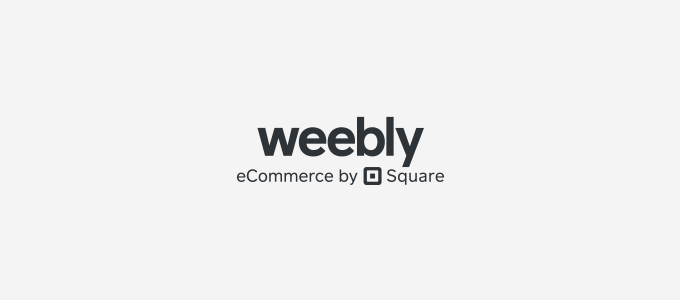
Weebly is a well-known website building platform owned by Square’s payments platform. They offer easy-to-use website building tools for business websites and ecommerce stores.
They also have a blog feature along with free blog templates to add to your website.
Benefits
- Fully hosted website and blogging platform.
- Seamless integration with Square payment platform.
- No setup for the hosted version.
Cons
- The free plan has limited features and bandwidth. It also includes Weebly branding.
- Paid subscriptions are expensive compared to top blogging sites.
- Blogging and SEO features are not as powerful as WordPress.
Check out our Weebly vs WordPress comparison for more details on this topic.
If you’re looking to switch from Weebly to WordPress, we have a detailed step – Created a step-by-step guide on how to properly switch from Weebly to WordPress.
See also: How to Start a Blog on Facebook [Including 19 Post Ideas People Love]
Pricing
You have a limited free version that comes with Weebly -Branding and Ads is coming.
Their paid plans start at $8 per month and are billed annually. The Pro plan is $12 per month and the Business plan is $25 per month.
Our Pick for Best Blogging Platform
We believe WordPress.org is all outperforms other blogging sites. It’s powerful, easy to use, affordable, and the most flexible of all blogging platforms available. Here are all the reasons why you should use WordPress.
To help you start your own WordPress site, we’ve created a complete guide on how to start a blog in 7 easy steps.
If you need help, WPBeginner’s team of experts can even help you set up your blog for free. Learn more about our free WordPress blog setup service.
If you’re looking for a WordPress alternative, then our second choice for the best blogging platform would be either Web.com or HubSpot.
Their drag and drop website builder makes it easy to create any type of website, from blogs to business websites to online stores, at a very affordable price.
Blogging -Platform FAQs
We’ve helped over 400,000 users launch their website and answered a whole host of questions in the process. Below are some of the most frequently asked questions about blogging platforms.
What is the best blogging platform for SEO?
According to all our market research, we have we have found that WordPress is by far the best blogging platform for SEO because it has powerful SEO plugins like All-in-One SEO that you can use to improve your blog’s ranking.
What is the best free blogging platform?
Most of the blogging platforms we have listed above offer a free version, but in our expert opinion, WordPress is the one best free blogging platform. There’s a reason over 43% of all websites use WordPress.
Although WordPress itself is free, you still need a domain name and web hosting, both of which cost money. A domain is the name of your website on the internet (e.g. wpbeginner.com) and web hosting is where your files are stored.
Some blogging platforms like Blogger or Medium offer you free hosting, but they place advertisements on your website, which is not ideal.
That’s why we recommend making a small investment from $2.75 per month to fully own your blog using WordPress on Bluehost.
You might also want to read our guide on why WordPress is free and what’s the catch.
What platforms do most bloggers use?
According to our blogging research data, most bloggers use WordPress to create their blog and it powers over 43% of all websites on the web.
People publish over 70 million new blog posts on WordPress every month.
You may also find our article on the history of blogging helpful to better understand how various blogging platforms have developed.
How can I my Make blog popular?
The best way to make your blog popular and grow your audience is to create quality content and promote it on social networks. You need to understand your audience’s problems and then help them solve them.
We’ve created the ultimate guide to increasing your blog traffic with 27 proven tips to check out.
What is the best blog topic to make money on?
You can make money on almost any blog topic as long as you have an audience, but it There are several blogging niches that are more successful than others. Top blogging topics include health & fitness, personal finance, fashion, lifestyle, business & marketing, and travel.
For a full list, see our Best Blogging Niche Guide as well as our Best Tips to monetize your blogs Blog.
What is the best time to publish a blog post?
According to research and studies, the best time to to publish a blog post, the best traffic is Monday around 11:00 am EST.
But the real answer is that it depends on your audience and their location. For example, if the majority of your audience is in Australia, 11:00 am EST wouldn’t work.
We have a detailed guide on how to test the best posting time for your blog.
How long does it take for a blog to become popular?
Too often, beginners start a blog with the expectation that it will become an instant success. In our experience, most blogs take at least 7-8 months before seeing decent traffic, with real long-term results showing after 2-3 years.
The same goes for pretty much any type of blog creator-based Business like a YouTube channel or course.
Of course, there will be some exceptions where a creator can have instant success, but that’s not the norm.
For example: Our WPBeginner blog, one of the highest grossing blogs in the world, started in 2009. See WPBeginner Earnings Report.
How often should I blog per week?
The frequency with which you post is less important than consistency. We recommend that you start out by consistently publishing one blog post per week. If you can do that 3 weeks in a row, try 2 and then build up.
On the WPBeginner blog we post 5 days a week (Monday to Friday).
But on our other business blogs, we only publish two blog posts per week.
What are the top 3 best blog sites for beginners?
Our top 3 of the best blog sites for beginners are:
- WordPress – self-hosted with WordPress is the best blogging site overall.
- Web.com – an inexpensive alternative to WordPress with Website building solution for small business.
- Wix – complete website building platform and a good WordPress alternative.
We hope this article has been helpful for you to choose the best one Blogging platform for your next blog.You may also want to read our guide to creating an email newsletter to increase your blog subscribers and our guide to creating a business email address for your blog.
If you enjoyed this article , then Please subscribe to our YouTube channel for WordPress video tutorials. You can also find us on Twitter and Facebook.
See also: How to Add a Navigation Menu in WordPress (Beginners Guide)
.

